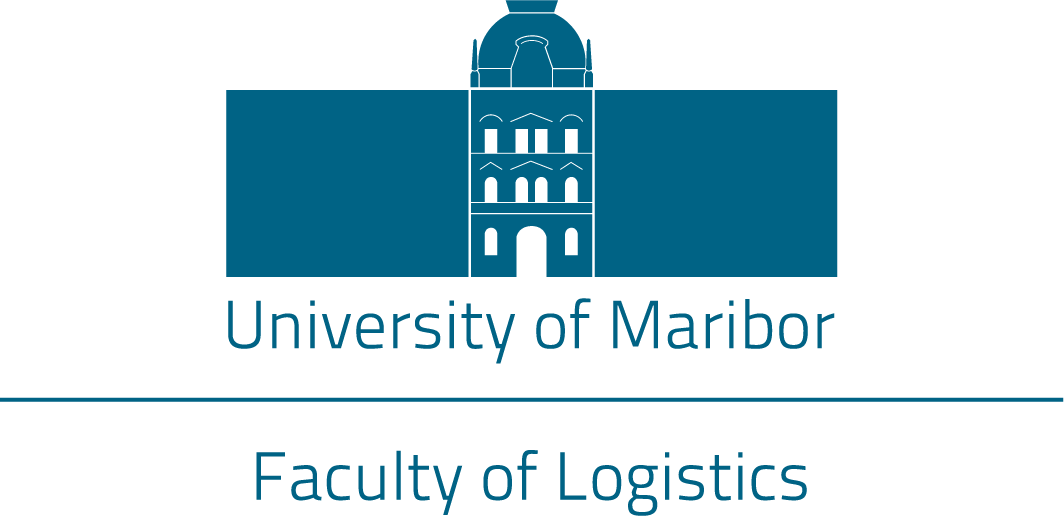Laboratory for Quantitative Modelling in Logistics
Logistics is a scientific discipline of an applied nature. Nowadays logistics models and analyzes economic systems in time and space as the flow of matter (goods, information, money and people) through different networks. Its purpose is to use known and recognized scientific methods to offer solutions that give us the form and method of implementation of such networks. The scientific questions answered by logistics mainly relate to the configuration and organization of such networks and to the release and control of material flows through the network. Its main goal is to achieve a balance between economic, ecological and social goals.
In the Laboratory for quantitative modelling in logistics, we see logistics exactly as it is written in the definition. We see economic systems in society as networks and the economic processes that take place in them as the flow of goods, information, people and money. Thus, economic systems are modelled by networks and processes by flow through these networks. Using various mathematical models, linear and nonlinear, deterministic or stochastic, we optimize networks, their structure and size, and release or stop the flow of material through them. When reality allows, we use mathematical programming methods, otherwise, we use various simulation methods.
In our laboratory, in accordance with our definition of logistics, we scientifically undertake basic research, the main goal of which is to contribute to the global treasury of knowledge. We try to publish the findings of this research in renowned scientific journals. In this way, we try to spread our influence on the development of our science field worldwide.
We also carry out applied research commissioned by the industry. This research is important from the point of view of the transfer of new knowledge from the research sphere to real life. In this way, we try to help the industry to better and more efficiently organize logistics systems and optimize processes. At the same time, with new ideas, especially on ways to use modern state-of-the-art technology, we are trying to create the conditions for creating new high-tech jobs. So we are trying, at least in some way, to give back to the local environment their investment in our existence.
Projects
MeAndYou Distribution
The project MeAndYou Distribution aims was to employ everyday urban mobility of individuals in the last mile distribution, that in some cases citizens will be able to deliver goods (using cars, bicycles, walking…) from senders to receivers on their way and help reduce traffic and air pollution caused by delivery vehicles. Within the project was developed a new smartphone application that allows its users (senders, recipients, and deliverers) to participate in crowd delivery. The APP incorporates options for ride-sharing, additionally increasing environmental benefits of its use. Through the client application, senders and receivers can create delivery tasks (defining time, start & final destination and the cargo). The platform then chooses a deliverer that has the closest match to the parameters of tasks. Green points, financed from the City fee, awarded to users for their eco-friendly behaviour, may be turned to, for example, concert or theatre tickets or free parking. This project was realized by higher education and business partners from two different RIS countries, and application testing was performed in a living lab RIS SEE city.
Within MAY-D project was developed a new APP that will allow its users (senders, recipients, and deliverers) to participate in “crowd” (one-to-one) delivery. The APP incorporates options for ridesharing, additionally increasing environmental benefits of its use. The cost of a single delivery can be paid either by senders or recipients and consist of the delivery fee (paid to the deliverer), EIT support fee (paid to EIT as the supporter of the project), the consortium fee (distributed between members of the consortium, without the City) and the City fee. Green points, financed from the City fee, awarded to the APP users for their eco-friendly behaviour, may be turned to, for example, concert or theatre tickets, and in case of ride-sharing in exchange for, for example, free parking. The APP support advertising through its and this will bring additional income for the consortium and EIT UM.
The use of drones
The use of drones or UAVs for commercial and civilian purposes has grown steadily in the last years, however, the legislation governing their use is very slow to adapt to the new possibilities that the developing technology delivers. With various regulations that vary from country to country, most hinder the effective use of drones for a feasible commercial use. While the reasons for the strict regulation are apparent, the available technology itself provides the answer to address the issues making the regulations inflexible. Based on a suitable technological foundation the legislation of drone use could be extended in order to yield an effective use that adheres to public safety and privacy.
A solution for these issues can be provided by a digital platform for unmanned aerial traffic management (UATM). The aim is to build a digital twin of the whole system that includes a 3D urban environment replica, UAVs and their use plans, along with any vital parameters that need to be observed for ensuring safe use and minimize any risks in the use of drones. With continuous communication between actual drones and the UATM system, a complete overview of the airways is provided. As such the UATM has a complete overview of the situation and allows risk assessment in real-time while the digital twin solution can detect and prevent hazards based on the planned drone flight missions. Given the monitoring capabilities, the proposed solution provides grounds for the safe and secure use of drones on a broader scale, opening new possibilities that are currently hindered by the regulations.
